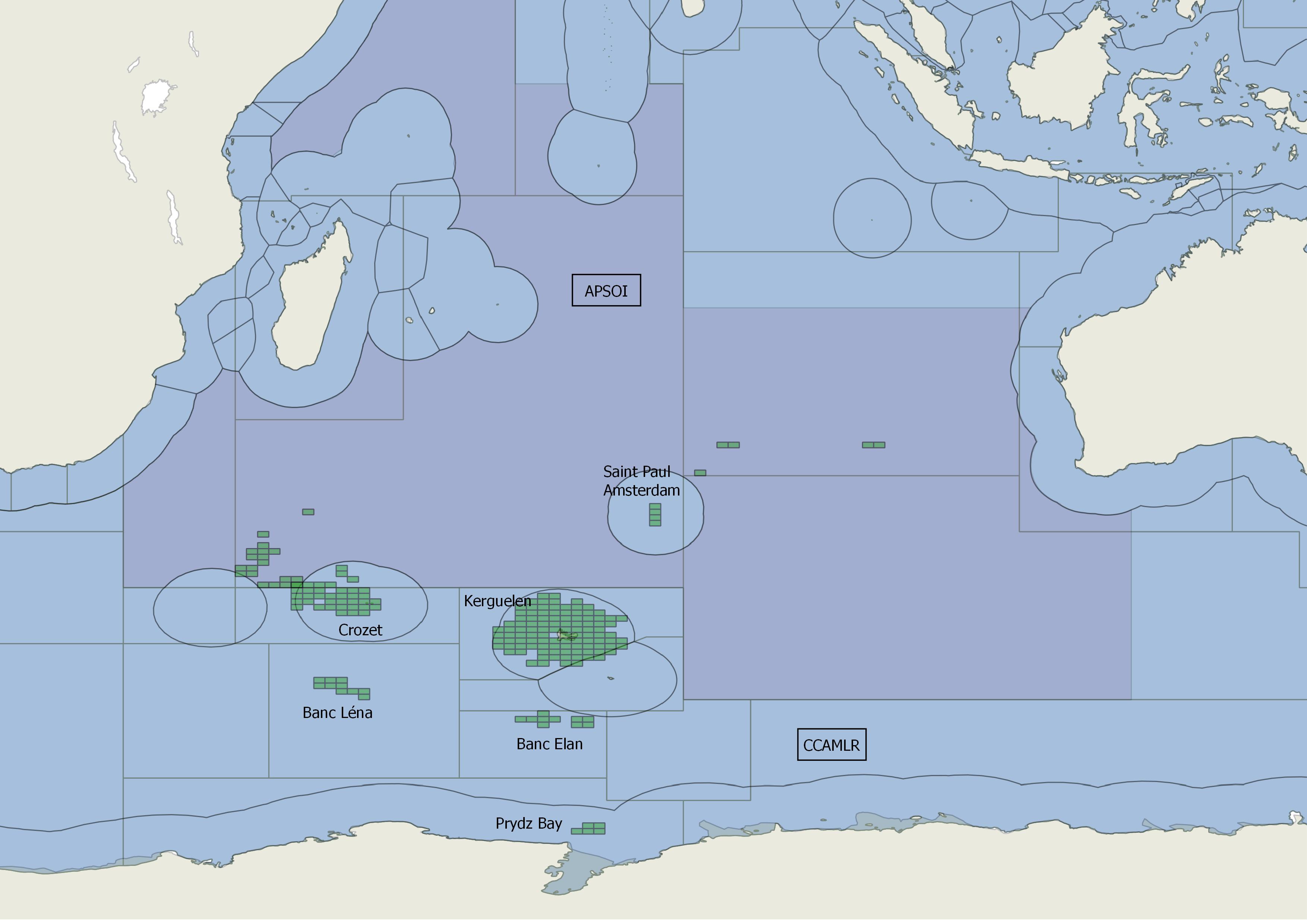La prochaine édition des « Rencontres bioinformatiques du MNHN » aura lieu le 4 novembre 2024 à l’Auditorium de la Grande Galerie de l’évolution du MNHN, à Paris, de 13h à 17h00 .
L'objectif de cette journée est de réunir les personnes du Muséum intéressées par la bioinformatique et plus généralement la biologie computationnelle pour à la fois diffuser des savoir-faire et des problématiques existants au Muséum mais aussi pour que nous puissions discuter méthodologies, ressources et outils communs. Cette journée s'adresse donc autant aux biologistes utilisant les modèles et méthodes qu'aux personnes développant ces modèles et méthodes.
Alexis Martin, et Charlotte Chazeau, chargés d'études scientifiques MNHN (BIOPAC/BOREA), communiqueront sur : Data curation, fisheries and ecosystem-based management: the case study of the Pecheker database (13h10-13h-35)
Résumé :
The scientific monitoring of the Southern Ocean French fishing industry is based on the use the Pecheker database. Pecheker is dedicated to the digital curation of the data collected on field by scientific observers and which analysis allows the scientists of the Muséum national d’Histoire naturelle institution to provide guidelines and advice for the regulation of the fishing activity, the protection of the fish stocks and the protection of the marine ecosystems. The template of Pecheker has been developed to make the database adapted to the ecosystem-based management concept. Considering the global context of biodiversity erosion, this modern approach of management aims to take account of the environmental background of the fisheries to ensure their sustainable development. Completeness and high quality of the raw data allowing the building of strong predictive models is a key element for an ecosystem-based management database such as Pecheker. Here, we present the development of this database as a case study of fisheries data curation. Considering the success factors we could identify, we propose a discussion about how the community could build a global fisheries information system based on a network of small databases including interoperabilitystandards.
L'objectif de cette journée est de réunir les personnes du Muséum intéressées par la bioinformatique et plus généralement la biologie computationnelle pour à la fois diffuser des savoir-faire et des problématiques existants au Muséum mais aussi pour que nous puissions discuter méthodologies, ressources et outils communs. Cette journée s'adresse donc autant aux biologistes utilisant les modèles et méthodes qu'aux personnes développant ces modèles et méthodes.
Alexis Martin, et Charlotte Chazeau, chargés d'études scientifiques MNHN (BIOPAC/BOREA), communiqueront sur : Data curation, fisheries and ecosystem-based management: the case study of the Pecheker database (13h10-13h-35)
Résumé :
The scientific monitoring of the Southern Ocean French fishing industry is based on the use the Pecheker database. Pecheker is dedicated to the digital curation of the data collected on field by scientific observers and which analysis allows the scientists of the Muséum national d’Histoire naturelle institution to provide guidelines and advice for the regulation of the fishing activity, the protection of the fish stocks and the protection of the marine ecosystems. The template of Pecheker has been developed to make the database adapted to the ecosystem-based management concept. Considering the global context of biodiversity erosion, this modern approach of management aims to take account of the environmental background of the fisheries to ensure their sustainable development. Completeness and high quality of the raw data allowing the building of strong predictive models is a key element for an ecosystem-based management database such as Pecheker. Here, we present the development of this database as a case study of fisheries data curation. Considering the success factors we could identify, we propose a discussion about how the community could build a global fisheries information system based on a network of small databases including interoperabilitystandards.



